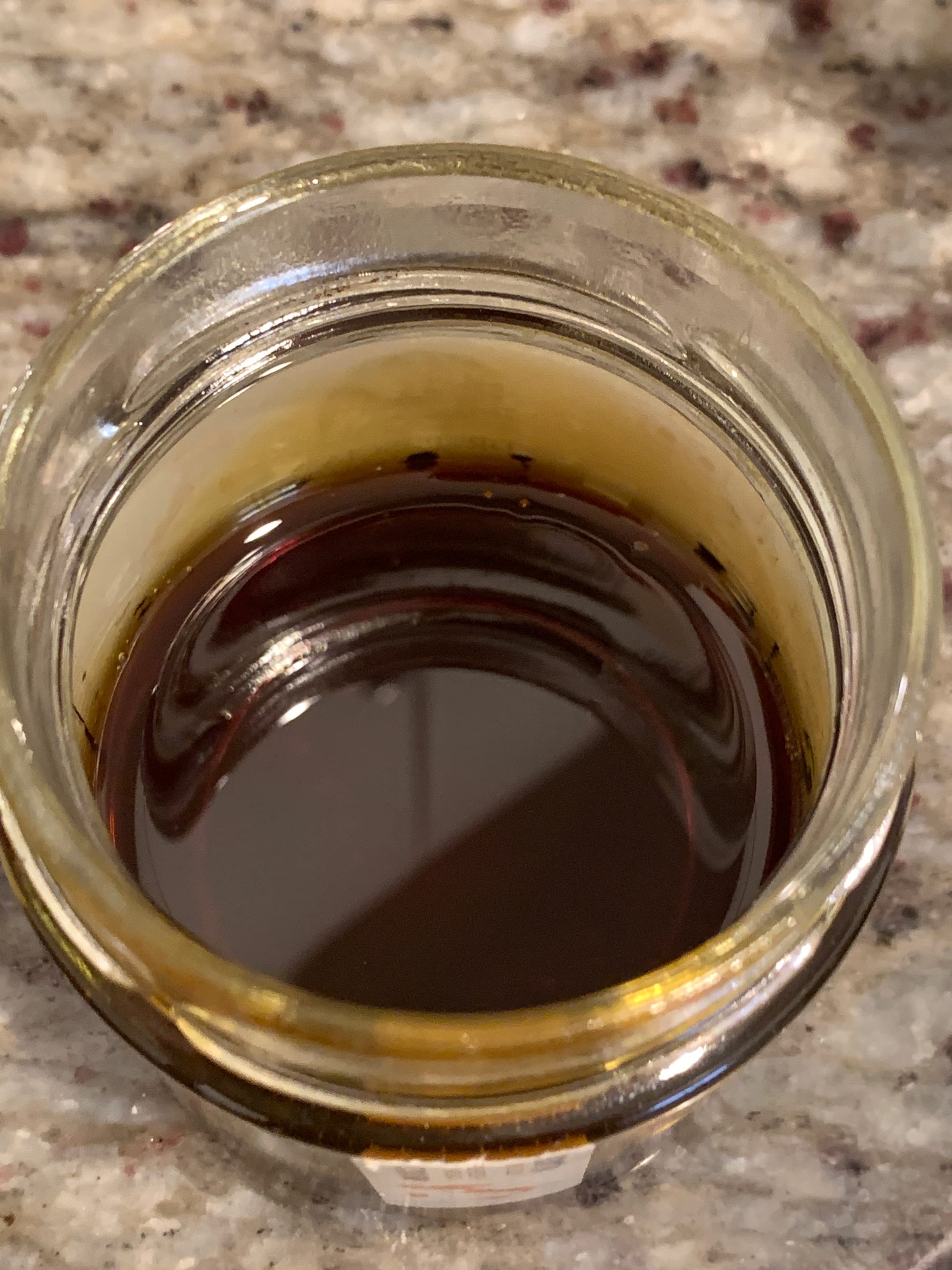FOOD FRIDAY: Bitter honey
Indignity Vol. 5, No. 80

HOMEOPATHIC DIETARY SUPPLEMENTS DEP'T.
FOOD FRIDAY: Healing Brew
THERE'S A SPRINGTIME cold working its way through the household, slowly, one person overlapping the next. My turn came up Wednesday night or Thursday. That's why there are no podcasts yesterday or today, because my throat hurts, and no weather review today, because although yesterday's weather looked glorious I was mostly napping indoors and barely saw it.
Drinking tea is at odds with napping, so after one cup of oolong this morning to stave off a caffeine headache, I needed to do something different with my mouth and my hands. I got out a mug that would have held a nice bitter cup of black tea with milk to start my day, and I put some ginger and lemon in it.
H Mart has the most reliably good ginger but they sell it in bigger packages than we usually need, so I always have some ginger in the fridge that's slowly aging its way toward the day that I see a nicer-looking package at H Mart and bring that home to replace it. Food waste! It's a sin but running out of ginger is bad too—in its own way—and it's not like it's actual calories going soft or shriveled and ending up in the trash. True, someone theoretically could have grown some more nourishing food in the space taken up by my surplus ginger, but there's only so much you can clamp down on, really. Anyway this ginger was still early in the cycle. Some of the knob I was using was ever so subtly softer and a darker tan, nothing I would have cared about if the ginger were running low; since there was plenty, I trimmed that off with the skin, irrationally counting that as a virtuous increase in my ginger consumption, and I cut off a few coins from the paler, more crisp part.
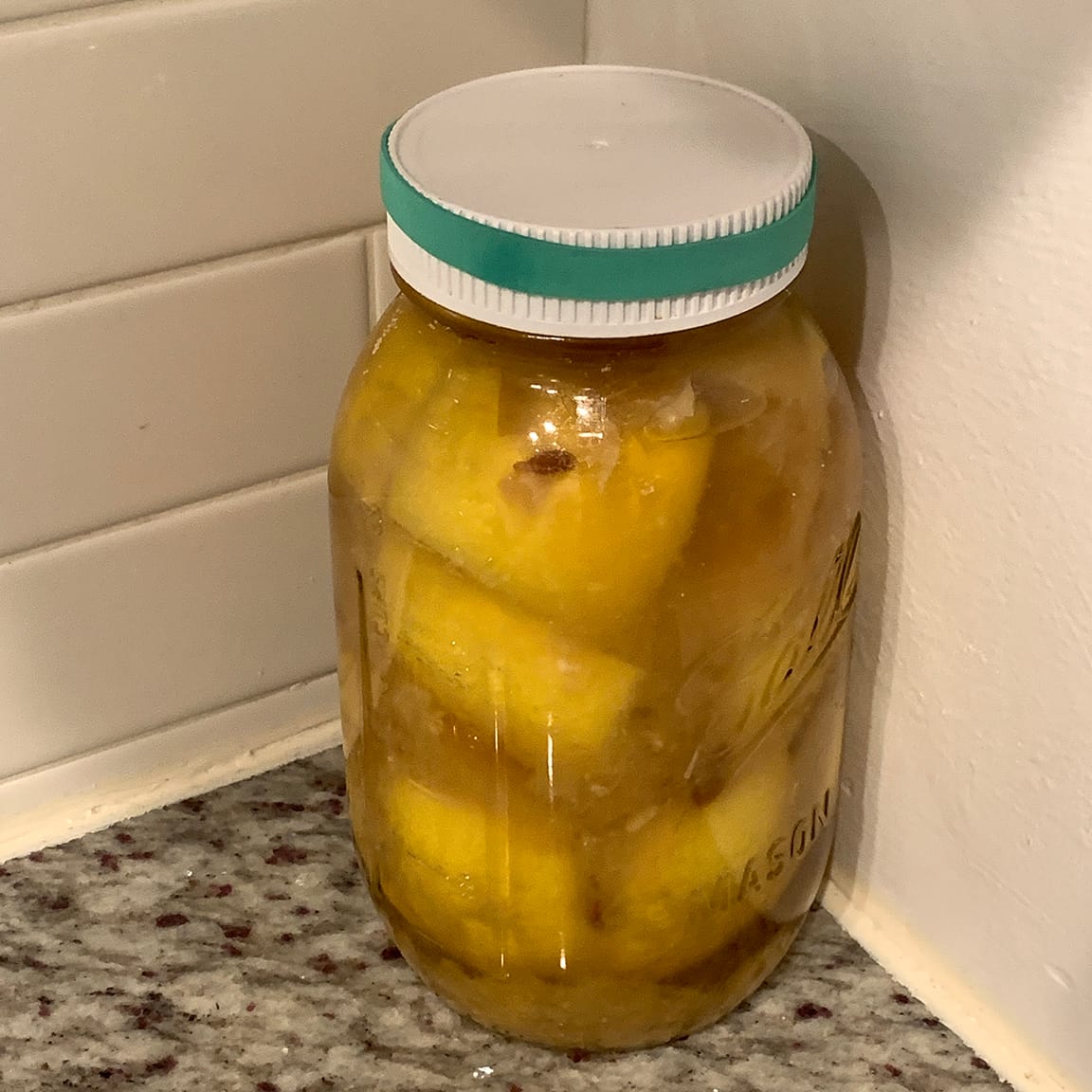
Feeling even more virtuous, or at least less burdened by vice, I went back to the fridge to find a lemon. I'd gotten a bag of lemons over the weekend to restore my supply of preserved lemons, so most of them went into a quart jar on the counter, individually cut open and salted and then submerged in the viscous brine from the previous batch of preserved lemons, carried forward from however many batches had gone before. I took one of the lemons that didn't fit and zested it over a pork shoulder, then stowed the zested lemon in the fridge, ostensibly for future use but more likely so it would slowly mummify or otherwise go bad so I could then throw it out without feeling guilty about it. But yesterday, when I started brewing hot drinks for my cold, I remembered it and cut some wedges out of it.
Now I was going to cut some more, except as I unwrapped it, the plastic wrap was wet. It smelled OK—? Or at least it smelled lemony? I went back to the fridge to investigate. There was a wet spot on the shelf where it had been, next to a tipped-over little plastic container of what was probably leftover salad dressing from takeout. I threw out the battered salad lemon and carved a couple wedges from the last intact lemon instead.
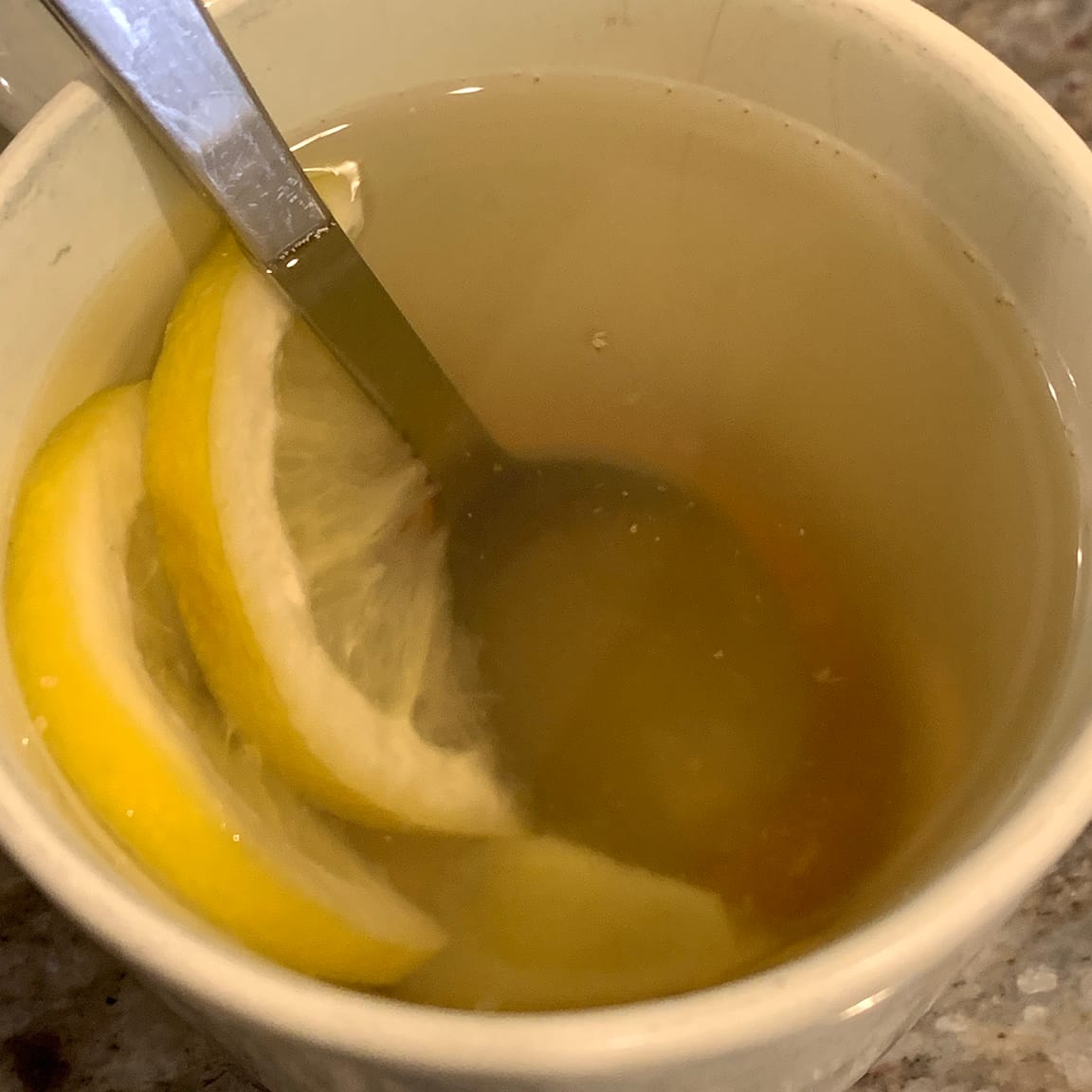
I poured boiling water over the lemon and ginger, then took a spoon I would have used to put a dollop of condensed milk in my morning tea and used it to add a spoonful of honey. The honey was chestnut honey from Tuscany. I cannot remember how the chestnut honey arrived—whether it was a gift from a friend, whether I bought it in a fancy store, whether we actually picked it up in Tuscany—but I remember my happy anticipation: chestnuts! And honey! Two natural delicacies, with flavors that would obviously, perfectly go together.
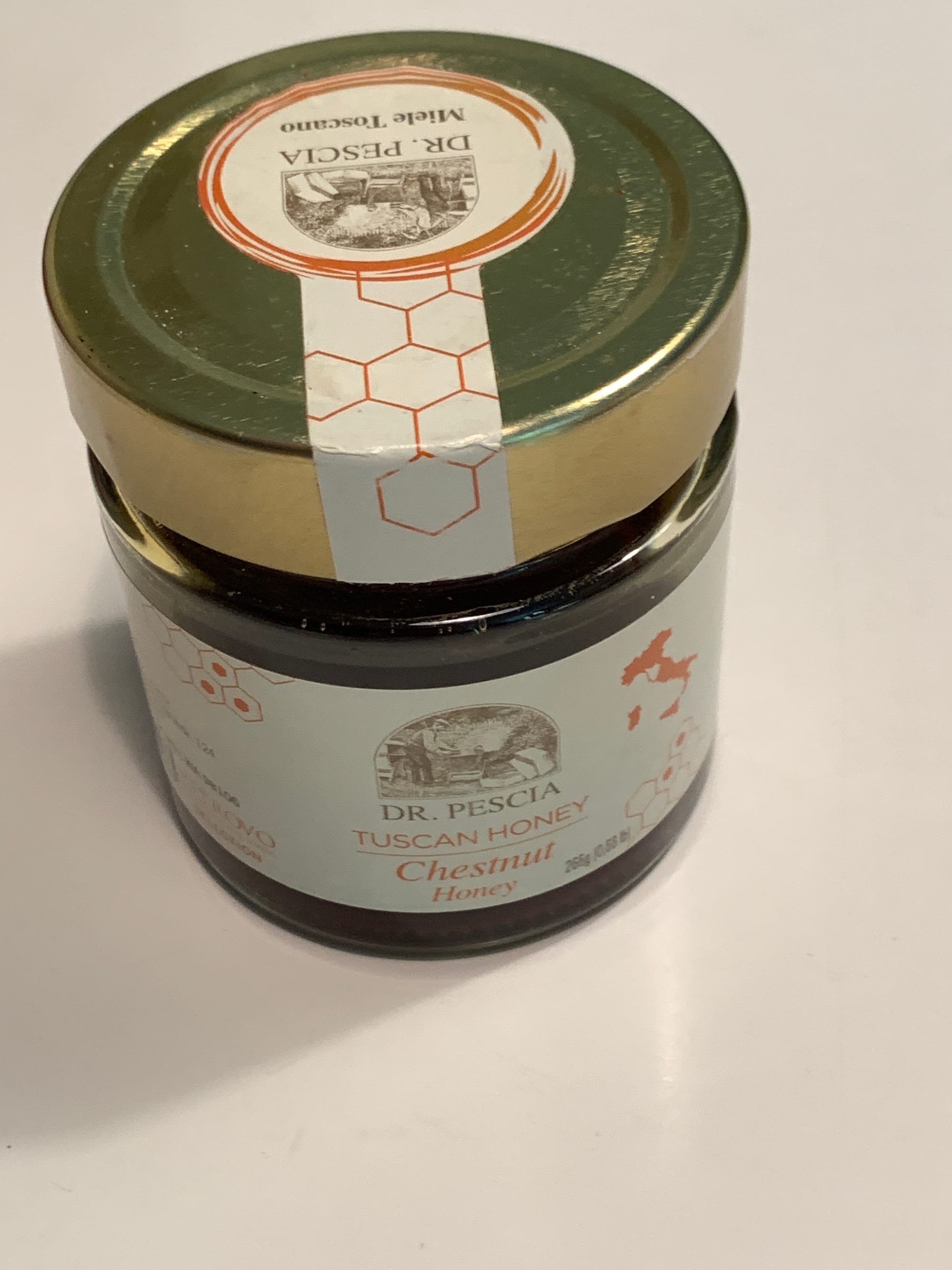
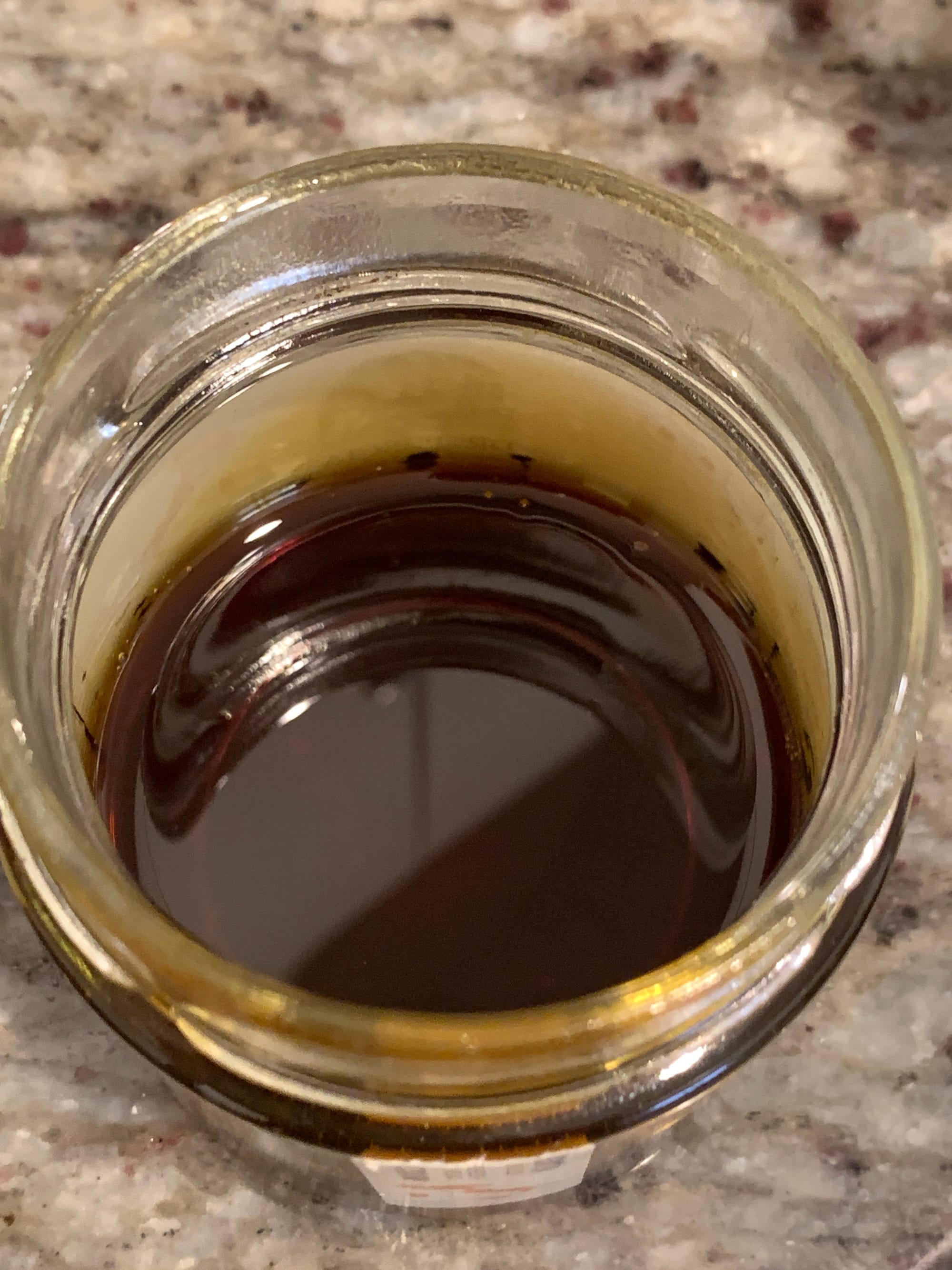
The honey challenge: DR. PESCIA TUSCAN HONEY Chestnut Honey
But the bees of Tuscany don't make chestnut honey from chestnuts, they make it from chestnut flowers, which are about three months and some major anatomical developments away from the nuts. The result is a dark honey that starts off sweet and then quickly reminds the eater that it came from a tree: not a tender blossoming clover plant in the grass, but something old and covered in bark and full of tannins. The flavor could be called "challenging"; on occasions like this, I prefer to think of it as "medicinal." Dissolved in hot water with the lemon and the ginger, adding its own pungency to the steaming fragrance, it is simultaneously soothing and bracing. It tastes like it has to be doing something.

VISUAL CONSCIOUSNESS DEP'T.
A Visit to the Doctor

More consciousness at Instagram. We detest the new rectangular-images grid.

ADVICE DEP'T.

HEY! DO YOU like advice columns? They don't happen unless you send in some letters! Surely you have something you want to justify to yourself, or to the world at large. Now is the perfect time to share it with everyone else through The Sophist, the columnist who is not here to correct you, but to tell you why you’re right. Direct your questions to The Sophist, at indignity@indignity.net, and get the answers you want.

SANDWICH RECIPES DEP'T.
WE PRESENT INSTRUCTIONS in aid of the assembly of a sandwich selected from Practical Cookery; A Compilation of Principles of Cookery and Recipes and The Etiquette and Service of the Table, by the Department of Food Economics and Nutrition, Kansas State Agricultural College, published in 1921, and available at archive.org for the delectation of all.
CHICKEN SANDWICHES
Force cold, cooked chicken through a food cutter and moisten with mayonnaise or with cooked salad dressing, Or season with salt and pepper and moisten with rich chicken stock. Chopped parsley, celery salt or onion juice may be used for seasoning. Spread between thin, buttered slices of bread.
If you decide to prepare and attempt to enjoy a sandwich inspired by this offering, be sure to send a picture to indignity@indignity.net.



